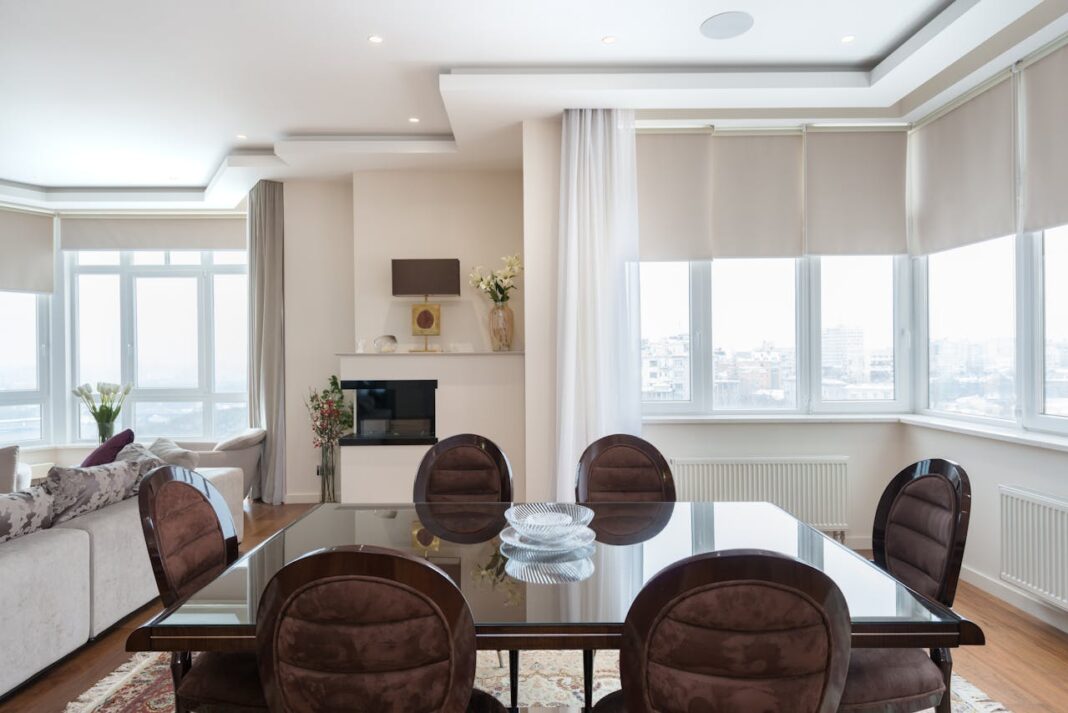The importance of having efficient windows in your home cannot be overstated. Windows play a vital role in enhancing the aesthetic appeal of a property and in determining its energy efficiency. As energy costs rise, the demand for better insulation and performance in home infrastructure has prompted many homeowners to consider how they can upgrade their living spaces. Upgrading to new windows can perform remarkably in increasing energy efficiency, leading to lower utility bills and a more comfortable living environment.
The Role of Windows in Energy Efficiency
Windows significantly impact the thermal performance of a house. Energy-efficient windows can reduce heat loss in the winter and prevent excessive heat from entering during the warmer months. Modern window designs incorporate advanced technologies like double and triple glazing, which create insulating pockets of air between layers of glass.
Low-E (low emissivity) coatings minimize heat transfer while allowing natural light to illuminate living spaces. Statistics show that nearly 25-30% of a home’s heating and cooling energy is lost through inefficient windows. By investing in new, energy-efficient models, homeowners can recapture much of this lost energy.
Cutting Energy Costs with Upgraded Windows
Upgrading your windows is one of the most effective ways to decrease energy costs in your home. Energy-efficient windows can drastically reduce reliance on heating, ventilation, and air conditioning (HVAC) systems, leading to significant savings. The U.S. Department of Energy estimates that homeowners can save anywhere from 7 to 15% on their energy bills after installing energy-efficient windows. These savings manifest immediately, and they usually continue over the lifespan of the windows, making them a wise financial investment. There are various tax incentives and rebates available for homeowners who make such improvements, which can help to offset the initial costs.
Environmental Benefits of New Windows
Beyond personal savings, upgraded windows contribute positively to environmental conservation. Reducing energy consumption means fewer greenhouse gas emissions, which are associated with traditional energy production methods.
A study from the Alliance to Save Energy noted that energy-efficient windows can significantly lower the carbon footprint of a household. By choosing to upgrade their windows, homeowners invest in comfort and savings and take a proactive approach in fighting climate change. Improved insulation performance can contribute to extending the lifespan of HVAC appliances, reducing their need for replacement, and diminishing waste.
Improved Comfort and Home Value
While energy efficiency and cost savings are paramount, the improvements in home comfort and property value should not be overlooked. New windows are designed to block drafts, reducing temperature fluctuations and minimizing the strain on heating and cooling systems. This alleviates discomfort during peak seasons and enhances the quality of indoor air, making living spaces more enjoyable and healthier.
Newer windows can increase your property’s market value. Beautifully designed, energy-efficient windows can catch a buyer’s eye and raise interest in home showings. Many real estate experts observe that homes with upgraded windows often sell faster and at higher prices, providing an excellent return on investment for homeowners.
Choosing the Right Windows for Your Home
Selecting the right windows involves consideration of several factors, including climate, architecture, and personal preferences. There are various window types available, such as casement, double-hung, and sliding, each with unique benefits and aesthetic appeal.
A crucial factor in window selection is the frame material. Options range from vinyl and fiberglass to wood and aluminum, and each material offers distinct energy-efficient properties. When planning to upgrade your windows, it’s wise to consult with experts who can help identify which types are most suitable for your specific needs and regional climate. Armed with this information, homeowners can make more informed decisions and achieve maximum benefits.
Installation Matters
The benefits of new windows can only be realized if they are correctly installed. Improper installation may lead to air leaks, moisture problems, and decreased thermal performance. Therefore, homeowners should prioritize hiring experienced professionals who understand local building codes and can ensure that the installation adheres to the highest standards.
Once the installation is complete, regular maintenance plays a significant role in keeping windows operating optimally. Simple tasks, such as cleaning and checking for any signs of wear or damage, will help maintain efficiency levels and increase the longevity of the windows.
Enhanced Security Features of Modern Windows
New windows offer advanced security features that contribute to the safety of your home. Modern window designs often incorporate stronger materials such as reinforced glass and multi-point locking systems that make it more difficult for intruders to gain access. Some windows also include laminated or tempered glass, which is much harder to break than traditional glass panes. Upgrading your windows can therefore provide peace of mind by enhancing your home’s overall security, protecting your family and valuables while complementing other security measures like alarms and cameras. These improvements not only deter potential break-ins but also help reduce insurance premiums in some cases.
Many manufacturers now offer windows with built-in sensors that can alert homeowners to any forced entry attempts. Investing in secure, modern windows is a smart way to safeguard your property while enjoying the benefits of updated design and energy efficiency.
Customization and Smart Window Technology
The latest window options extend beyond traditional styles, offering homeowners the opportunity to integrate smart technology for even greater convenience and efficiency. Smart windows can adjust their tint automatically based on sunlight intensity, reducing glare and heat gain without sacrificing natural light. Some models can be controlled remotely via smartphone apps, allowing you to open, close, or adjust them without being home. Customizable features, including size, shape, and finishes, mean windows can be tailored precisely to your home’s architectural style and your personal preferences. These innovations combine technology with functionality, further boosting the value and livability of your home.
Smart windows can contribute to further energy savings by optimizing indoor temperatures throughout the day. Integration with home automation systems allows seamless control alongside lighting, heating, and security features. As these technologies become more accessible, investing in smart window solutions is a forward-thinking choice that enhances both comfort and home efficiency.
The choice to upgrade to new windows carries weighty implications for a homeowner’s financial, environmental, and physical well-being. With reduced energy bills, enhanced comfort, and increased property value, the benefits discussed throughout this article provide a comprehensive overview of why this investment is worthwhile.
Thanks to the vast range of window techniques and styles available, homeowners have more options than ever to optimize their homes for efficiency and aesthetic appeal. A proactive mindset towards home upgrades translates to immediate comfort and savings and fosters long-term environmental wellness.






